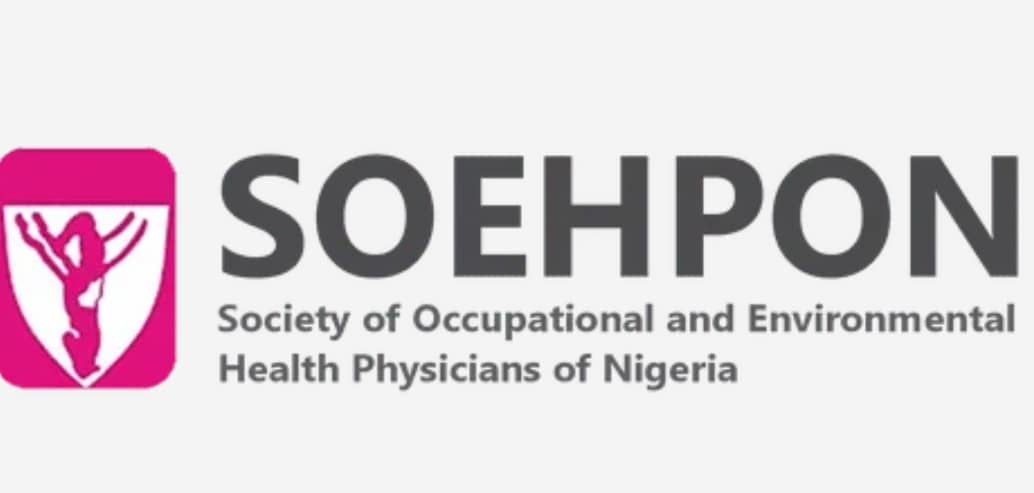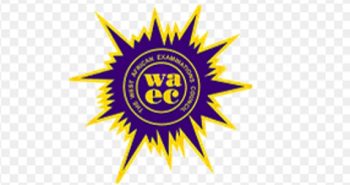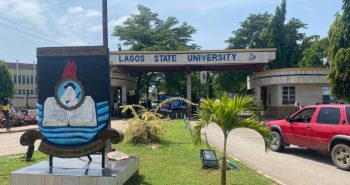Subscribe to the our newsletter to receive latest news straight to your inbox.
SOEHPON pushes for a data-driven approach for workplace safety in Nigeria
By Clifford Ejenavi The Society of Occupational and Environmental Health Physicians of Nigeria (SOEHPON) is pushing for a stronger, data-driven approach to safeguarding Nigerian workplaces This is because reliable statistics are critical to assist lawmakers in crafting and enforcing occupational health and safety laws. The President of SOEHPON, Dr. Musa Shaibu, told Nigerian Impact that…

By Clifford Ejenavi
The Society of Occupational and Environmental Health Physicians of Nigeria (SOEHPON) is pushing for a stronger, data-driven approach to safeguarding Nigerian workplaces This is because reliable statistics are critical to assist lawmakers in crafting and enforcing occupational health and safety laws.
The President of SOEHPON, Dr. Musa Shaibu, told Nigerian Impact that after the 2025 conference, SOEHPON will template structure to begin to collate relevant data as a first step.
Nigeria currently lacks a robust national database of workplace injuries, illnesses, and fatalities. This makes it somewhat difficult for policymakers to appreciate the scale of risks and enact effective preventive measures.
Lawmakers cannot protect what they do not measure. Without credible data, occupational health and safety will remain reactive instead of preventive. Nigeria must begin to track workplace hazards with the same seriousness as infectious diseases.
While SOEHPON is outlining steps to generate the data needed, there should be the need to establish a coordinated reporting system where companies, factories, and public institutions submit quarterly data on workplace injuries, toxic exposures, and related illnesses. Collaborating with the Nigerian Social Insurance Trust Fund (NSITF) and Ministry of Labour and Employment to deploy mobile and online dashboards where employers and employees can log incidents in real time should be considered.
SOEHPON President has assured of conducting sector-specific studies in high-risk industries such as oil and gas, construction, mining, and healthcare to provide lawmakers with evidence for sector-targeted safety regulations. Partnering with universities and teaching hospitals to track occupational diseases and publish findings that can guide legislative committees should also be factored.
For public awareness and compliance audits, publishing annual reports on occupational health performance across industries, ranking compliance levels to pressure institutions into safer practices should equally be considered.
Lawmakers, particularly in the House Committee on Safety Standards and Regulations, have repeatedly complained about the lack of reliable statistics to back motions on occupational health and safety. With the Occupational Safety and Health Bill and other labour reform bills awaiting passage, data by SOEHPON would provide the ‘hard evidence’ needed to convince parliament of the urgency of stronger laws.
Dr. Shaibu emphasized that SOEHPON is ready to partner with the National Assembly, the Ministry of Labour and Employment, and the NSITF to ensure that Nigerian workers, especially in the informal sector are protected by data-informed laws.
Lawmakers need figures, not assumptions. With consistent data, Nigeria can move from reactive firefighting to proactive prevention in workplace safety. If successfully collected, SOEHPON’s data-driven initiative could strengthen enforcement of the Employee Compensation Act (2010), support passage of the Occupational Safety and Health Bill, provide benchmarks to measure compliance across industries, and ultimately reduce workplace deaths and injuries in both formal and informal sectors
For now, stakeholders agree that the battle for safer workplaces in Nigeria must be won with facts, not guesses, and SOEHPON wants to take the lead in generating them.
Recommended Articles
-
NUC approves two new programmes for LASU
2 months ago295 views -
2025 WASSCE not cancel – WAEC
2 months ago315 views -
139 LASU students selected as 2024 UN Millennium Fellows
1 year ago658 views -
How Yul-Edochie can regain his groove after marriage crash with Judy Austin
4 weeks ago277 views -
NELFUND takes student loan sensitization to South-East, urges students to apply
1 year ago337 views









